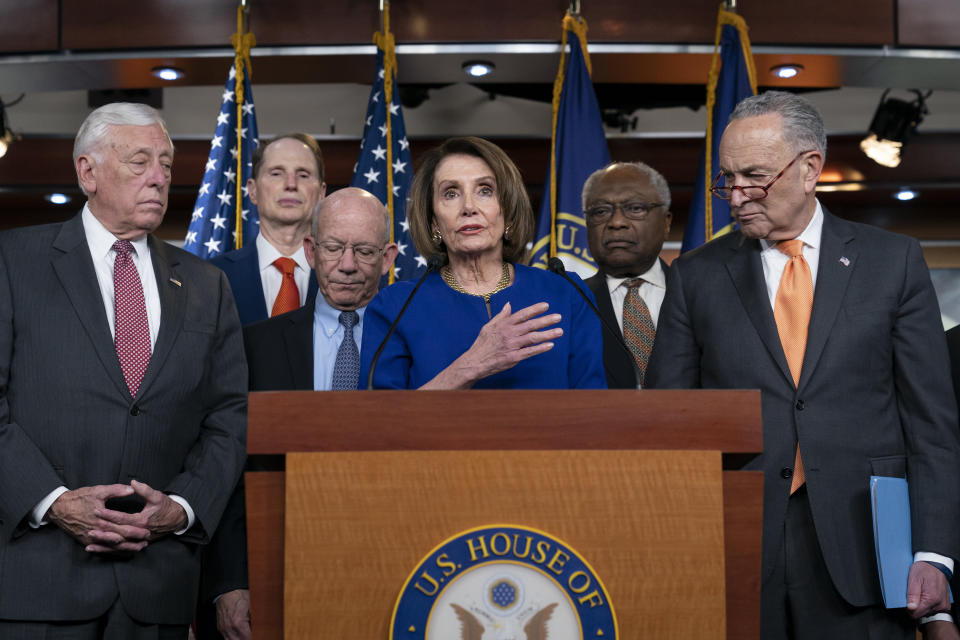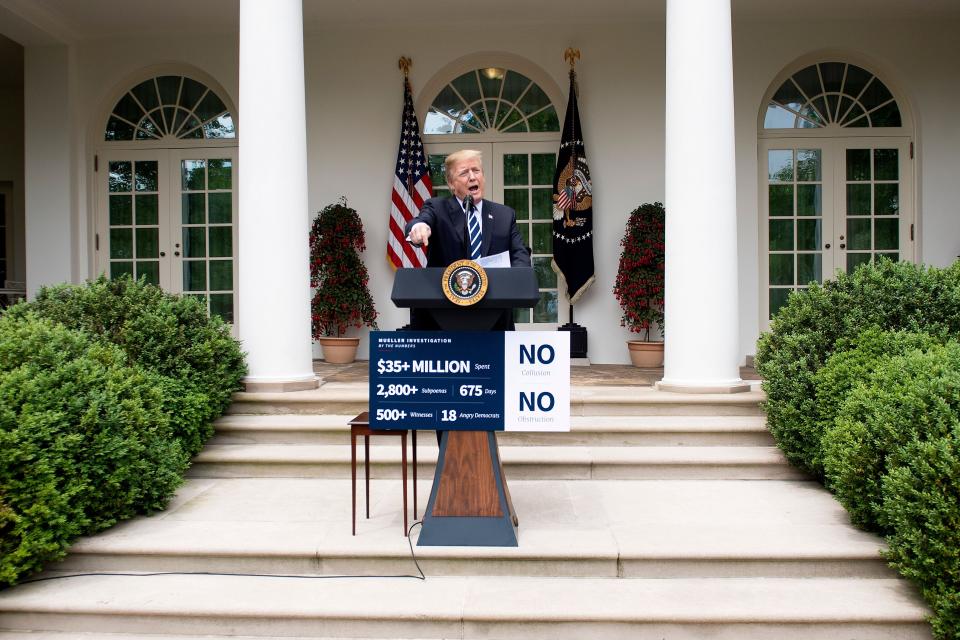Democrats Say This Court Case Shows Impeachment Isn't Yet Necessary
WASHINGTON ― House Democrats believe a recent court case upholding Congress’ subpoena power provides a key argument for why they won’t need to launch an impeachment inquiry into President Donald Trump ― yet.
“The judge says you don’t need impeachment procedures,” Rep. Bill Pascrell (D-N.J.) said Wednesday. “That’s good enough for me.”
The judge he’s referring to is U.S. District Court Judge Amit Mehta. The case is Donald J. Trump v. Committee on Oversight and Reform. The president, in his personal capacity, had sued the committee to block its subpoena for the president’s financial information from Mazars USA LLP, an accounting firm used by Trump and his business.
Oversight Committee Chair Elijah Cummings (D-Md.) sought the information after Trump’s former lawyer said the president manipulated his financial information to obtain loans and avoid taxes. Cummings has said the committee needs to investigate whether the president has accurately disclosed his finances and whether he has undisclosed conflicts of interest. Trump’s personal lawyers argued in court that Cummings had no legitimate legislative purpose to obtain the documents.

Mehta’s straightforward ruling squashing the president’s challenge came down on Monday.
“It is simply not fathomable,” Mehta wrote, “that a Constitution that grants Congress the power to remove a President for reasons including criminal behavior would deny Congress the power to investigate him for unlawful conduct ― past or present ― even without formally opening an impeachment inquiry.”
The Trump administration has adopted an unprecedented position of stonewalling in the face of 10 congressional subpoenas, prompting more and more Democrats to come out in favor of an impeachment inquiry. House Speaker Nancy Pelosi (D-Calif.) on Wednesday sought to reassure her caucus that there is no need for impeachment proceedings as long as regular oversight still works.
In a closed-door meeting Wednesday, Pascrell told his colleagues that the Mehta ruling shows that oversight does still work.
“In many ways, the judge’s decision is more significant to what we’re doing than the Mueller investigation,” Pascrell told reporters afterward, referring to the Justice Department’s special counsel investigation into the president’s campaign collusion with Russia and subsequent attempts to obstruct justice.
Mehta shot down the same argument that Trump’s lawyers, both personal and in the White House, are making in almost every subpoena case: that Democratic requests for information serve no legitimate legislative purpose. The only thing Democrats are trying to do, according to this argument, is embarrass the president.
To that end, the Mazars subpoena seeks “private financial information for the sake of exposure, with the hope that it will turn up something that Democrats can use as a political tool against the President now and in the 2020 election,” Trump’s attorneys wrote in their complaint.
Supreme Court precedents indicate it’s not the judiciary’s job to second-guess lawmakers’ motives when it’s clear there could be a legislative purpose. With regard to the Mazars subpoena, Mehta noted that Democrats could amend laws relating to presidential ethics rules and disclosures. “Thus, the potential presence of some intent to ‘ridicule, harass, or punish’ the President cannot overcome this facially valid legislative purpose,” Mehta wrote.

Mehta’s ruling affirming the overlapping nature of Congress’ legislative and investigative functions ― while straightforward and in line with prior precedent ― is a potential death knell for the Trump administration’s subpoena stonewalling.
“It’s part of [Democrats’] plan to get some favorable legal opinions on these issues to try to make it clear to the president and the executive branch that they don’t have a leg to stand on in this argument about legitimate legislative purpose,” said Margaret L. Taylor, a Brookings Institution fellow and former Democratic chief counsel to the Senate Foreign Relations Committee.
If the White House begins to lose these separation-of-powers cases at higher levels in the courts, it may decide to obey congressional subpoenas or seek compromise rather than risk decisions further empowering Congress at the expense of the executive.
“I think Pelosi is trying to get this whole, honestly, ridiculous idea of ‘no legitimate legislative purpose’ swept off the table in all of these instances,” Taylor said. “And based on established Supreme Court precedent, I don’t see any of these cases going Trump’s way.”
The ruling sets a binding precedent for other subpoena cases in the U.S. District Court for the District of Columbia, said Neil Kinkopf, a law professor at the Georgia State University College of Law.
In a separate ruling, Judge Edgardo Ramos of the Southern District of New York affirmed Congress’ right to subpoena documents from Deutsche Bank, Trump’s former lender, on Wednesday. The decision was practically identical to Mehta’s ruling in the Mazars case.
But winning in district court doesn’t really mean Democrats will get what they want, since Trump and his administration can appeal to higher courts and potentially drag proceedings until the president is out of office. The administration’s assertions that Congress has no legitimate legislative purpose to issue subpoenas before it asserts executive privilege may very well be a tactic to slow-walk investigations through multiple layers of litigation.
“I think that’s Trump’s strategy, to delay, delay, delay,” Kinkopf said. “It is possible for the suits to be resolved quickly, but that would be unusual.”
Related Coverage
Trump Administration Defies Tax Return Subpoena
Nancy Pelosi Tries To Tamp Down Impeachment Fever
Trump Walks Out Of Meeting With Top Democrats, Blames Impeachment Talk
Love HuffPost? Become a founding member of HuffPost Plus today.
This article originally appeared on HuffPost.

